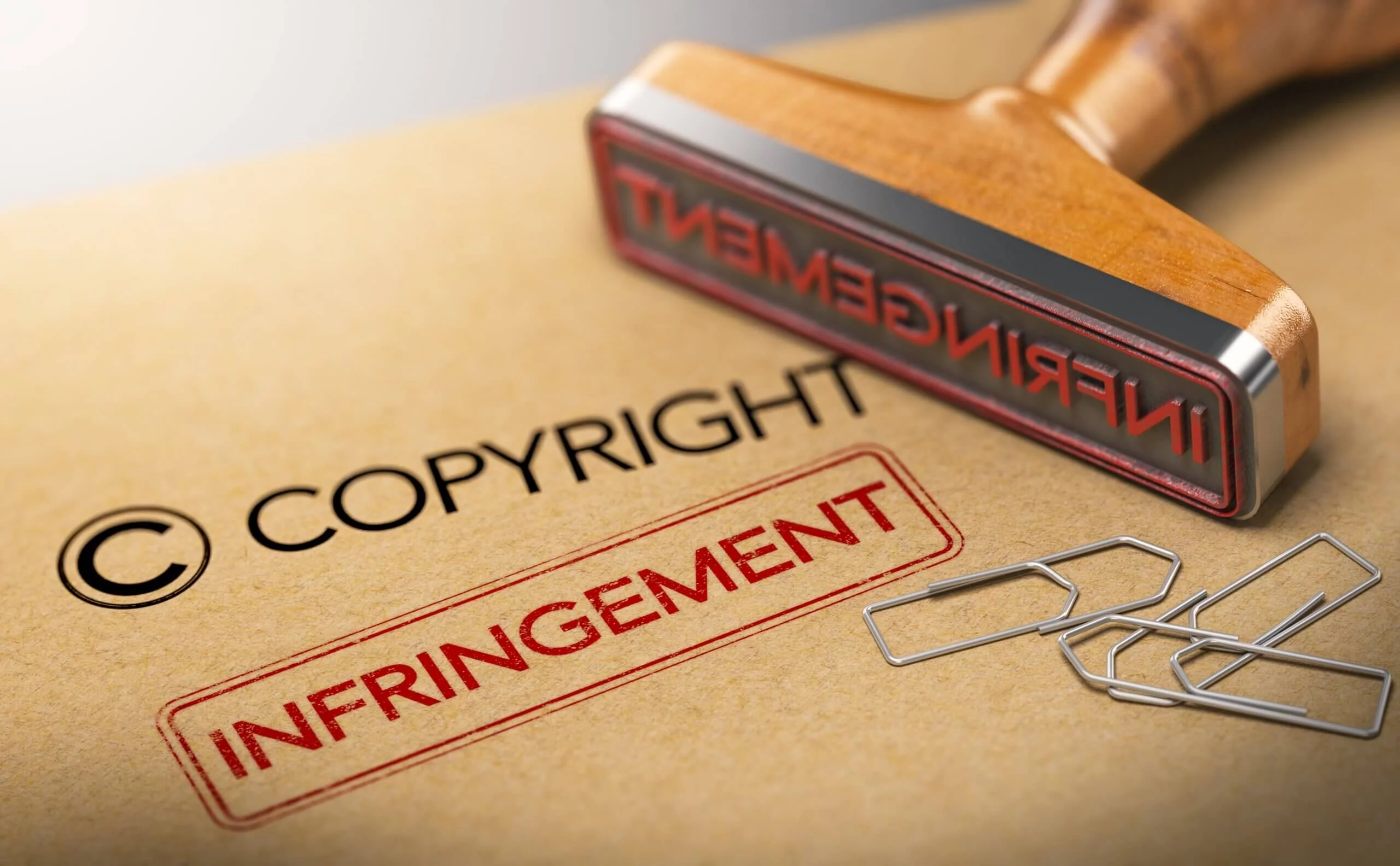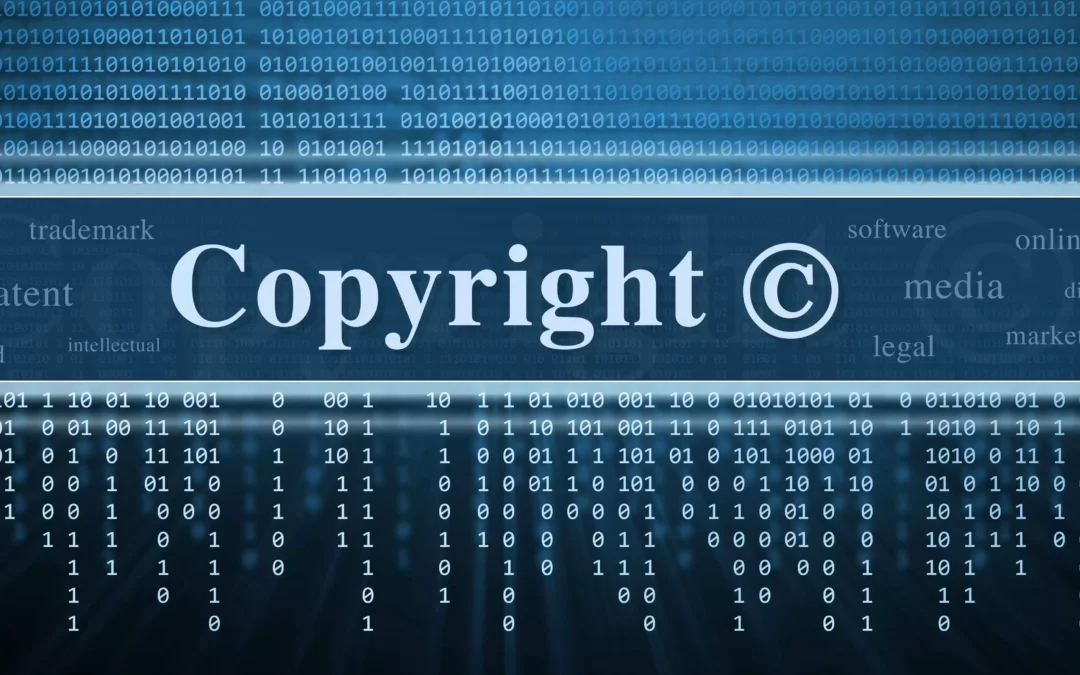When I build a website pouring hours into design content and layout I want to know my work’s protected. With so much information online it’s easy to worry about someone copying my site and passing it off as their own. That’s where copyright comes in but the rules aren’t always as straightforward as they seem.
I’ve seen plenty of confusion about what parts of a website can actually be copyrighted and how that protection works. If you’re wondering whether your website’s safe from copycats or if you need to take extra steps to secure your rights you’re not alone. Let’s break down what copyright really means for websites and how it affects creators like me.
Understanding Website Copyright

Understanding-Website-Copyright
Copyright protects original website elements, as long as creators produce the content themselves and record it in a fixed form. I categorize copyrightable website components below for clarity.
| Website Component | Copyright Status | Example |
|---|---|---|
| Text Content | Protected | Blog articles, product descriptions |
| Visual Design | Protected | Custom layouts, original graphics |
| Source Code | Protected | HTML, CSS, JavaScript hand-written by the developer |
| Audio/Video Content | Protected | Embedded podcasts, original videos |
| Database Structure | Sometimes Protected | Unique data organization, not raw data |
| Functional Elements | Not Protected | Standard menus, general navigation patterns |
For casino websites, copyright covers the original text, design, and software unique to the platform. For example, hand-drawn card deck illustrations, distinctive page layouts, and custom betting algorithms created for a casino site receive copyright protection. However, generic betting rules and standard card game mechanics don’t fall under copyright, according to 17 U.S.C. § 102(b).
Copyright registration isn’t required to claim protection in the US, but it’s necessary for litigation. I keep all creation dates and drafts as evidence since documentation strengthens my position during disputes. Copyright applies automatically when I finish and save original website work.
Legal cases, like Feist Publications, Inc. v. Rural Telephone Service Co., confirm that facts and basic data, such as a list of casino winners or odds, don’t earn copyright; only the creative expression in presenting that data is protected. This distinction means that my unique site designs and content remain shielded, but foundational concepts do not.
What Elements of a Website Can Be Copyrighted

What-Elements-of-a-Website-Can-Be-Copyrighted
Copyright law covers original and fixed elements on a website. My site’s creative text, images, layouts, and code each receive distinct copyright protection if I create them and fix them in a tangible medium.
Text Content
Text content on a website receives copyright protection as a literary work. Blog posts, product descriptions, guides, and original reviews are covered. Generic instructions, factual data, and common phrases do not qualify for protection unless they contain creative expression.
Images, Graphics, and Videos
Images, graphics, and videos are covered by copyright as artistic works. Custom banners, original icons, promotional videos, and unique graphic designs each obtain automatic protection once created. Stock images and unoriginal visuals used without transformation don’t meet the threshold for copyright as original works.
Website Design and Layout
Website design and layout acquire protection if their arrangement or coordination demonstrates originality. Custom navigation menus, unique interface combinations, page hierarchies, and creative selection of featured content meet this standard. Standard templates and basic navigational elements lack sufficient originality for protection.
Code and Software
Code and software receive copyright as literary works when the code is original. HTML, CSS, JavaScript, and other programming code used to build site features, such as dynamic scoring tables or interactive menus, are protected. Basic functions, generic scripts, or code provided by public libraries are not covered if they lack creative contribution.
Copyrightable Elements in Online Casino Websites
Unique elements in casino websites can qualify for copyright. Original game instructions, bespoke software code, distinctive interface graphics, and custom-written promotional text are all protected as creative works. However, generic gameplay mechanics and standard gaming rules aren’t covered.
| Website Element | Copyrightable? | Example | Not Copyrightable Example |
|---|---|---|---|
| Blog Posts | Yes | In-depth casino reviews | Generic gambling tips |
| Custom Graphics | Yes | Slot game illustrations | Unmodified stock icons |
| Source Code | Yes | Original blackjack algorithm | Basic open-source randomizer |
| Layout Design | Yes | Unique progressive jackpot interface | Standard menu bar |
| Game Rules | No | Blackjack rule set |
What Cannot Be Copyrighted on a Website
Elements that lack original authorship or embody functional or generic qualities are not copyrightable on a website. Common examples include:
- Ideas and Concepts
Abstract ideas, themes, or processes don’t receive copyright protection unless expressed through original content.
- Procedures and Methods of Operation
Functional processes, such as user login routines, casino payout calculation procedures, or betting algorithms, are not protected, only their unique written description or code might qualify.
- Domain Names, Titles, and Slogans
Single words, website addresses, product names, or slogans fall outside copyright protection, though some may qualify for trademark registration.
- Familiar Symbols and Design Elements
Generic icons, the playing card suits commonly used in casino sites, standard navigation buttons, or variations of common typefaces are excluded from copyright.
- Facts and Data
Statistical data, casino jackpot numbers, game result histories, and publicly accessible payout rates are not copyrightable as they represent facts.
- Work for Hire and Transferred Rights
If copyright in casino website content is contractually assigned to an employer or client, I hold no rights as the original creator.
Non-Copyrightable Website Elements Table
| Element Type | Example in General Sites | Example in Casino Sites |
|---|---|---|
| Ideas/Concepts | Mobile-friendly interface | Casino risk calculation methods |
| Procedures/Methods | Multi-step registration | Progressive jackpot payout process |
| Domain Names/Titles | examplewebsite.com | casinoking123.com |
| Slogans | “Best Deals Online” | “Win Big Now” |
| Familiar Symbols/Designs | Envelope icon for ‘Contact’ | ♠, ♥, ♦, ♣ for card suits |
| Facts/Data | NYC population statistics | Current slot machine payout rate |
| Typeface Variations | Arial Bold instead of Arial | Courier New in game instructions |
| Work for Hire/Assignment | Content made for a client | Game rules produced for casino owner |
Copyright excludes these website elements because originality or creative authorship is missing, or intellectual property law treats them differently.
How to Copyright a Website
Copyright registration protects original website elements, including content and code. I follow a structured process with casino or non-casino sites to ensure ownership rights are secure.
Steps to Register Copyright
Preparing all copyrightable website materials streamlines the registration process. I use this sequence:
- Assemble Assets: I gather all original text, graphics, photos, audio, video, and code files.
- Register an Account: I create an account with the U.S. Copyright Office at copyright.gov.
- Complete the Application: I fill out details for authorship, ownership, and type of authorship per USCO Circular 66.
- Pay Fees: I submit the required fee electronically. Online fees for a basic claim start at $45.
- Deposit Copies: I upload or send required material samples as specified during the application.
| Step | Required Action | Tools/Source |
|---|---|---|
| Assemble Assets | Compile site content, code, design, visuals | Local files, CMS exports |
| Register an Account | Create/login USCO account | copyright.gov |
| Complete Application | Input authorship/content details | Online USCO portal |
| Pay Fees | Submit payment ($45-$125 range) | Credit card, bank transfer |
| Deposit Copies | Upload digital files or mail physical samples | USCO guidelines |
Benefits of Copyright Registration
Registering a website’s copyright grants significant legal and practical advantages. I gain these benefits:
- Proof of Ownership: I secure evidence of my rights for enforcement if infringement occurs.
- Litigation Rights: I can bring a lawsuit for damages or injunctions in U.S. federal court.
- Public Notice: Posting a copyright notice visibly on the site deters unauthorized copying.
- Inexpensive Protection: Legal protection through registration costs less than contested litigation. Lawyer fees for copyright disputes average $342/hour, so early registration limits exposure.
- Expanded Coverage: Registration covers a website’s components, including HTML code, design, multimedia, and text, as a compilation if I submit original and technical elements.
| Benefit | Description | Reference |
|---|---|---|
| Proof of Ownership | Legal documentation supports infringement claims | USCO |
| Litigation Rights | Filing suit in federal court requires registered rights | USCO, Circular 66 |
| Public Notice | Deterrent and rights notification via copyright notice | USCO, legal sources |
| Lower Legal Costs | Avoids high lawyer fees in future disputes | Average $342/hr legal fee |
| Broad Coverage | Registration includes content, design, and code | USCO, Circular 66 |
Copyrighting Original Content for Casino Websites
Casino website owners secure protection for unique gaming materials with copyright registration. I copyright the following:
- Custom Game Instructions: Protecting original text describing unique casino rules or gameplay.
- Bespoke Software Code: Guarding original source code for casino platforms or digital games.
- Exclusive Visuals: Registering unique artwork, interface graphics, and promotional videos.
| Casino Website Asset | Copyright Eligibility | Example |
|---|---|---|
| Game Instructions | Yes, if original text | Unique blackjack variant description |
| Source Code | Yes, if original software | Proprietary slot machine mechanics |
| Visuals/Videos | Yes, if original artwork | Custom roulette wheel graphics |
Copyrighting these elements helps prevent unauthorized duplication by competitors and enhances the value of the site as intellectual property.
Copyright Infringement and Website Protection

Copyright-Infringement-and-Website-Protection
Protecting website content requires active attention because copyright infringement occurs frequently online. Many website owners face unauthorized use of their original content, images and unique designs.
Common Copyright Violations
Unauthorized uses of website material account for most copyright violations. Infringers often copy text articles, duplicate images, repost videos or steal source code without the website owner’s consent. Automated tools or manual actions enable easy reproduction of original works.
| Violation Type | Example | Legal Status |
|---|---|---|
| Copying Written Content | Republishing blog posts or articles from a site | Infringement |
| Stealing Images | Using another site’s photographs without a license | Infringement |
| Embedding Videos | Displaying protected videos outside the source site | Infringement |
| Downloading Source Code | Reusing scripts or CSS from an original website | Infringement |
Check any instance where another party distributes, displays or publicly performs website content without approval for a copyright violation.
How to Enforce Your Copyright
Enforcing my website copyright involves several progressive steps. Registering original web content with the U.S. Copyright Office allows me access to stronger remedies including statutory damages, according to the U.S. Copyright Act of 1976.
I first identify the infringing use by locating unauthorized hosting, copying, or display of website elements. Once confirmed, I document specific evidence showing infringement.
My first step in enforcement typically involves sending a cease and desist letter to the infringer. If informal resolution fails, I may file a formal copyright complaint or request a takedown (for example using the Digital Millennium Copyright Act with relevant web hosts).
If the content remains online or distribution continues, I pursue legal action for an injunction and seek damages. Table 2 summarizes my enforcement steps:
| Enforcement Step | Purpose | Typical Outcome |
|---|---|---|
| Send Cease and Desist | Warn and demand removal | Removal or response |
| File Formal Complaint | Alert a host, ISP, or search engine | Content takedown |
| Register with Copyright Office | Obtain legal leverage and statutory damages | Litigation option |
| Legal Action | Seek injunction and monetary damages | Court judgment |
Website operators often add reporting features and privacy policies to aid copyright violation mitigation, creating an easier process for users to flag suspected infringements.
Copyright Enforcement for Casino Websites
Casino websites experience unique copyright challenges. Site owners frequently copyright original game instructions, custom graphics and exclusive software code. Infringers mirror games, steal distinctive visual interfaces or repost gaming rules.
Table 3 demonstrates casino-specific copyright infringement risks:
| Casino Element | Example of Infringement | Actionable? |
|---|---|---|
| Custom Game Software | Distributing proprietary gaming code | Yes |
| Original Graphics | Replicating branded slot visuals | Yes |
| Game Instructions | Posting unique rules from the site | Yes |
| Standard Gameplay | Using generic blackjack rules | No (not protected) |
Casino site owners enforce their copyrights by monitoring for duplicated content and using regulatory bodies or DMCA requests for fast removal. The unique nature of many games and designs often increases the likelihood of successful copyright claims.
Conclusion
Protecting my website’s original content is a crucial part of building and maintaining a strong online presence. Understanding what can and can’t be copyrighted helps me make informed decisions about how I create and share my work. By staying proactive with documentation and registration I can better defend my intellectual property and ensure my efforts are respected in the digital world.
Frequently Asked Questions
What parts of a website can be copyrighted?
Original elements such as text content, images, videos, unique website design, and source code can be copyrighted. These elements must be created by the website owner and fixed in a tangible form. Generic features like standard menus or basic layouts are not protected by copyright.
Are website designs protected by copyright?
Yes, unique website designs that show creativity and originality are protected. This includes custom layouts, graphics, and visual elements. However, generic designs or commonly used templates do not qualify for copyright protection.
Do I need to register my website to get copyright protection?
No, copyright protection exists automatically upon creation of original content in a tangible form. However, registering with the U.S. Copyright Office is required if you want to file a lawsuit for infringement and provides stronger legal advantages.
What cannot be copyrighted on my website?
Content that cannot be copyrighted includes basic ideas, procedures, standard rules, methods, domain names, titles, short phrases, familiar symbols, and factual data. Only original and creative expressions are protected.
How do I register my website for copyright?
To register your website, gather your original content and visit the U.S. Copyright Office website. Create an account, complete the application, submit copies of your materials, and pay the filing fee. Registration offers proof of ownership and additional legal benefits.
What should I do if someone copies my website’s content?
If your copyrighted content is copied, you should document the infringement, send a cease and desist letter, and file a formal complaint if necessary. If these steps fail, consider pursuing legal action to enforce your rights.
Do online casino websites have special copyright considerations?
Yes, casino websites can copyright original game instructions, bespoke software code, and unique visuals. However, generic casino rules and standard gameplay mechanics are not eligible for copyright protection.
What are the benefits of copyright registration for websites?
Copyright registration provides proof of ownership, public notice of your rights, eligibility to sue for infringement, lower legal costs, and expanded protection for your website’s original components.
Can I copyright work created by someone else for my website?
If the content was created under a work-for-hire agreement, your business typically owns the copyright. Otherwise, the creator retains the rights unless they formally assign them to you through a written agreement.
Is copying source code from another website a copyright violation?
Yes, copying original source code without permission is considered copyright infringement. Make sure to create your own code or obtain proper licenses to avoid legal issues.

